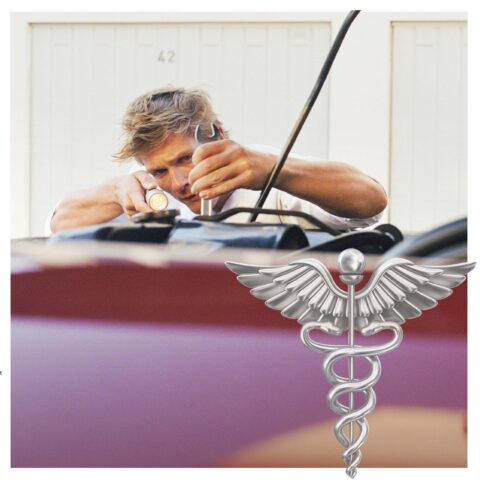At just 22, one woman decided to make her mark on the world and ended up helping found a company that aims to right some of the wrongs modern life has wrought
on our systems.
Life is definitely more stressful than ever, especially over the last couple of years. A decade ago, the science of microbiomes was a relatively new study. Even though probiotics and yoghurts have been on the shelves for decades, its DNA and the effects on the brain were only just being realised.
One of the interesting things we’re beginning to understand about microbiomes is their messaging system inside the human body. From eczema to diabetes to any one of the multiple inflammatory diseases that the 21st century has wrought upon us, the microbiome is either exacerbated or mitigated by them. In the gut there are good bacteria and bad bacteria and each one keeps the other in check. It’s when they get out of kilter that the trouble starts.
One of the astounding discoveries about the microbiome was how it produces neurotransmitters which it sends from your gut to your brain.
This is an area of research Colleen Cutliffe has spent the last 10 years of her life investigating. With a PhD in Biology, she’s one of the founders of Pendulum, a start-up that uses DNA sequencing to pioneer effective solutions to the ailments tied to gut health.
Colleen’s daughter was born prematurely and was fed antibiotics early and has a range of food sensitivities. When Akkermansia muciniphila – a unique probiotic strain that is found in your gastrointestinal tract – was discovered, it all made total sense for Colleen.
“It used to be that we didn’t know what causes the microbiome to be depleted over time,” she says.
“Now we do. As well as antibiotics, your circadian rhythms also have a big impact on your gut. When you fly to another place and your day becomes night and your night becomes day, it actually depletes your microbiome because your circadian rhythm and your microbiome are linked to each other. There are certain microbiomes that get turned off and on at certain times of the day so when you move into a different time zone and are changing your behaviour, not all the microbiomes can keep up.
“Everything just gets a bit chaotic and results in a less diverse microbiome than you had before. Similarly this happens when we have stressful periods and when we go through menopause.”
At one point we were able to eat and drink anything and never had to worry about it, but life isn’t like that anymore. On a fundamental level, glucose control helps you metabolise sugars. We’ve been eating fruit since the beginning of time, and we have evolved to develop microbes that help us metabolise sugars, but when we lose them or disrupt them everything gets off-kilter.
“Taking a Akkermansia muciniphila supplement is just giving you back the microbes that help you metabolise things,” Colleen says.
“Because when your body understands it has the microbes to metabolise sugar better, it sends a signal to your brain that says ‘you don’t need as many sugars, we’re good to go here’ which puts you onto a much better cycle.
“These strains are what young people have in abundance and all we’re doing is giving them back. You had them, you lost them, they’re essential and you need them.”
It’s complicated but very cool how it is all linked together. Science is helping us live better lives. What were once signals from our bodies we couldn’t read are now lights that go off and cause us to act.
“It’s like being in the car when the check engine light comes on,” Colleen says. “We don’t just put a piece of tape over it and say ‘Oh great, I can’t see that light anymore’. We do actually check the engine.”
Colleen Cutcliffe is the CEO and co-Founder of Pendulum Therapeutics, which with backing from the Mayo Clinic has recently launched its patented probiotics in New Zealand.








